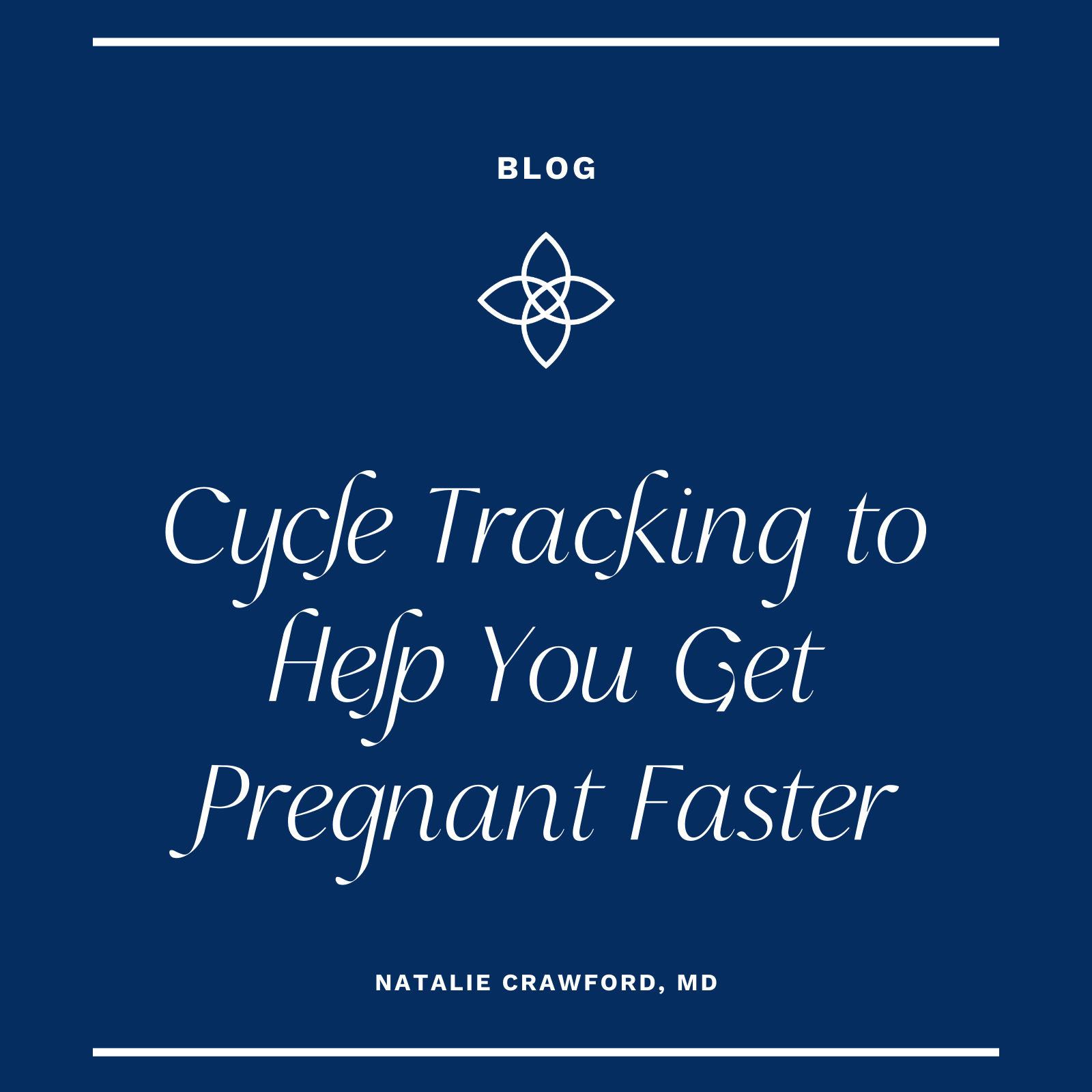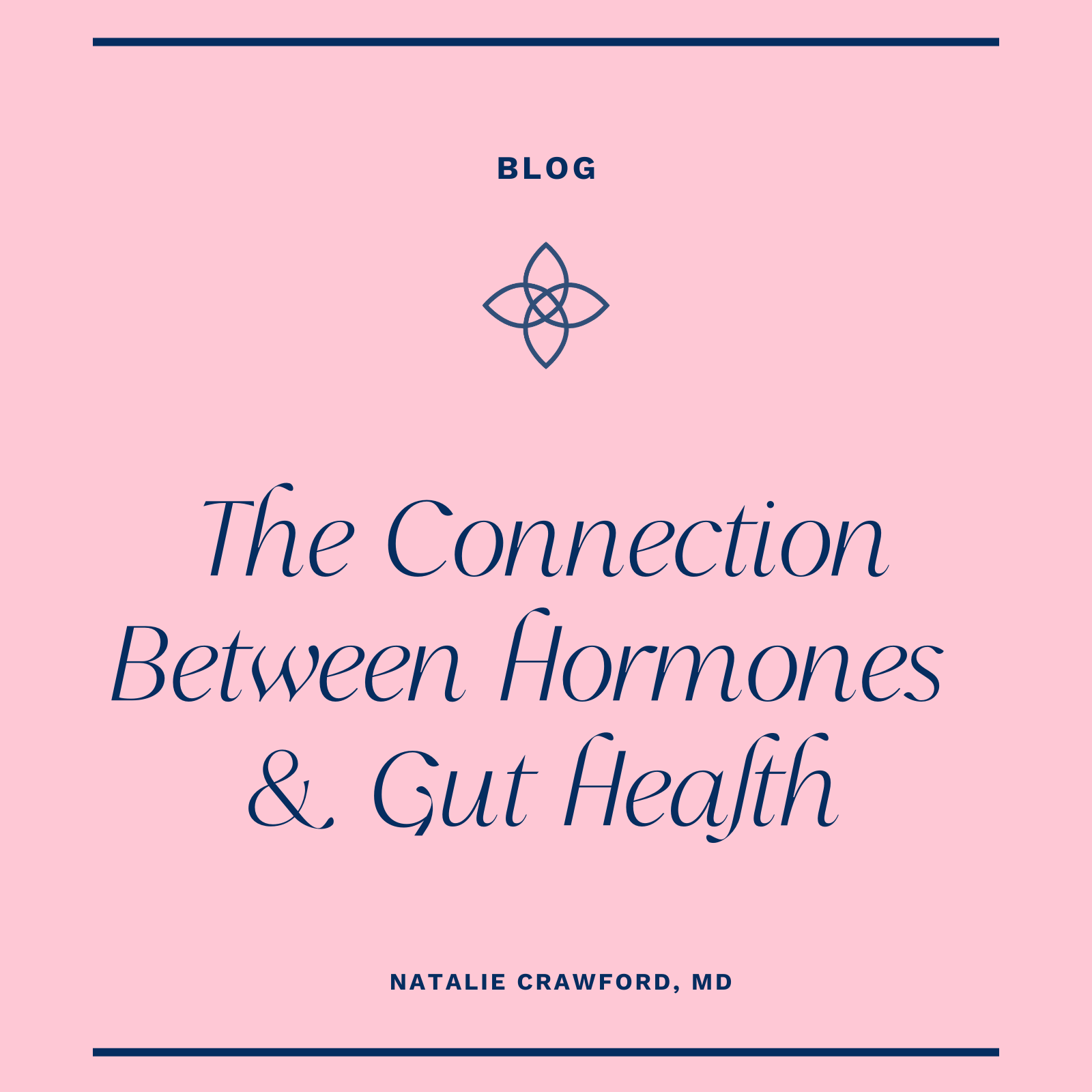Fertility + Hormones + Health + Lifestyle
Welcome to the blog
Cycle Tracking to Help You Get Pregnant Faster
Dr. Natalie Crawford breaks down the basics of cycle tracking. She explains how ovulation works, why apps alone can be misleading, and how tools like basal body temperature, cervical mucus, and ovulation predictor kits can help you better understand your body and get pregnant faster.
The Connection Between Hormones & Gut Health
Dr. Natalie Crawford breaks down the powerful connection between gut health and estrogen. In this episode, she explains how inflammation, diet, and the gut microbiome influence hormone balance and fertility, and shares practical steps women can take to support their gut, regulate estrogen, and optimize reproductive health.
Top 5 Mistakes People Make When Trying to Get Pregnant
Dr. Natalie Crawford, board-certified OB-GYN and reproductive endocrinologist, breaks down the five most common mistakes she sees — from cycle tracking and sperm health to supplements and emotional support — and what to do instead.
A Guide to Cervical Mucus
Dr. Natalie Crawford explains what cervical mucus is, how it reflects hormonal changes throughout the menstrual cycle, and how tracking it can help you better understand ovulation, fertility, and overall cycle health.
Understanding Unexplained Infertility at a Young Age
Dr. Natalie Crawford breaks down unexplained infertility in young couples. She explains why being young does not guarantee fertility, the real monthly odds of conception, and what testing, treatments, and next steps matter most when infertility occurs earlier than expected.
8 Questions You Need to Ask Before You Do IVF
Dr. Natalie Crawford, board-certified OB-GYN and fertility doctor, breaks down the eight essential questions every patient should ask before starting IVF. From understanding your diagnosis to knowing your success rates, costs, and risks, these questions help you take control of your fertility journey.
How Age Affects Fertility (And What You Can Still Control)
Natalie Crawford, MD explains why fertility declines with age—and why it’s not simply because women “run out of eggs.” She breaks down egg quality, genetics, inflammation, and metabolic health, empowering you to understand their fertility and make informed, data-driven decisions.
How I’d Approach Getting Pregnant Today
Dr. Natalie Crawford, a board-certified OB/GYN and fertility expert, shares her personal approach to trying to get pregnant today. From understanding your cycle to optimizing lifestyle factors, Dr. Crawford provides actionable tips for anyone looking to take control of their fertility journey.
10 Things That Impact Sperm Quality
Dr. Natalie Crawford breaks down the top ten factors that negatively impact sperm quality and male fertility. She explains how lifestyle choices, environmental exposures, and medical conditions influence sperm count, motility, and morphology, and why understanding these contributors is essential for any couple trying to conceive.
Natural Family Planning 101
Dr. Natalie Crawford explains natural family planning methods, fertility awareness, and how to track ovulation to either achieve or avoid pregnancy. She breaks down cycle phases, fertile windows, cervical mucus changes, basal body temperature shifts, and more.
Can a C-Section Impact Future Fertility?
Dr. Natalie Crawford, a Board-Certified OB/GYN and reproductive endocrinologist, explores how C-sections can affect future fertility. She explains the latest research, isthmoceles (C-section scar defect), and offers practical guidance for those trying to conceive after a C-section.
Understanding Progesterone and the Luteal Phase: How to Support Your Cycle Naturally
Dr. Natalie Crawford breaks down the role of progesterone and the luteal phase in the menstrual cycle. She explains what low progesterone really means, common mistakes in treatment, and how to naturally support healthy hormone balance through lifestyle, nutrition, and stress management.
How to Improve Egg Maturity and What It Really Means in IVF
Dr. Natalie Crawford, a board-certified OB/GYN and REI, explains egg maturity in IVF, why it matters, and strategies to optimize outcomes. She breaks down ovarian reserve, stimulation protocols, and how understanding egg maturity can help patients advocate for their best possible results.
How Early Can You Take a Pregnancy Test? Early Implantation Signs
Dr. Natalie Crawford explains the earliest signs of pregnancy, how they differ from luteal phase symptoms, and when it’s accurate to take a pregnancy test. This guide helps anyone trying to conceive understand what’s happening in their body and how to advocate for their reproductive health.
What Is a Semen Analysis?
Dr. Natalie Crawford, board-certified OB/GYN and fertility doctor, explains the semen analysis — the key test for understanding male fertility. She breaks down what the results mean, how to prepare, and what lifestyle factors can impact sperm health.
6 Common Causes of Heavy Periods
Dr. Natalie Crawford, a board-certified OB-GYN and fertility specialist, breaks down what it really means to have a heavy period, the most common causes behind it, and why you shouldn’t ignore changes in your menstrual cycle.
5 Ways to Improve Your Egg Quality
You can’t change how many eggs you have, but you can influence their quality. Dr. Natalie Crawford shares her top five science-backed ways to support healthier eggs through lifestyle, nutrition, and daily habits that protect your fertility.
Endometriosis and Fertility: What You Need to Know
Dr. Natalie Crawford, a board-certified OBGYN and fertility doctor, breaks down the impact of endometriosis on fertility. She explains how the disease can affect ovarian reserve, natural conception, and treatment options like IUI and IVF, while offering guidance for women navigating unexplained infertility or recurrent implantation failure.
What Does a Low AMH Test Really Mean?
Dr. Natalie Crawford breaks down what diminished ovarian reserve means, how AMH testing works, and what you should know if you receive a low result.
Clomid: How Can It Help You Get Pregnant?
Dr. Natalie Crawford, a board-certified OB/GYN and REI, breaks down everything you need to know about Clomid (clomiphene citrate) in this educational post. She explains how Clomid works to stimulate ovulation, who can benefit from it, and the potential side effects to watch for. Dr. Crawford also highlights when Clomid is preferred over other treatments like letrozole. This guide empowers readers to understand their fertility options and make informed decisions with their doctor.





















